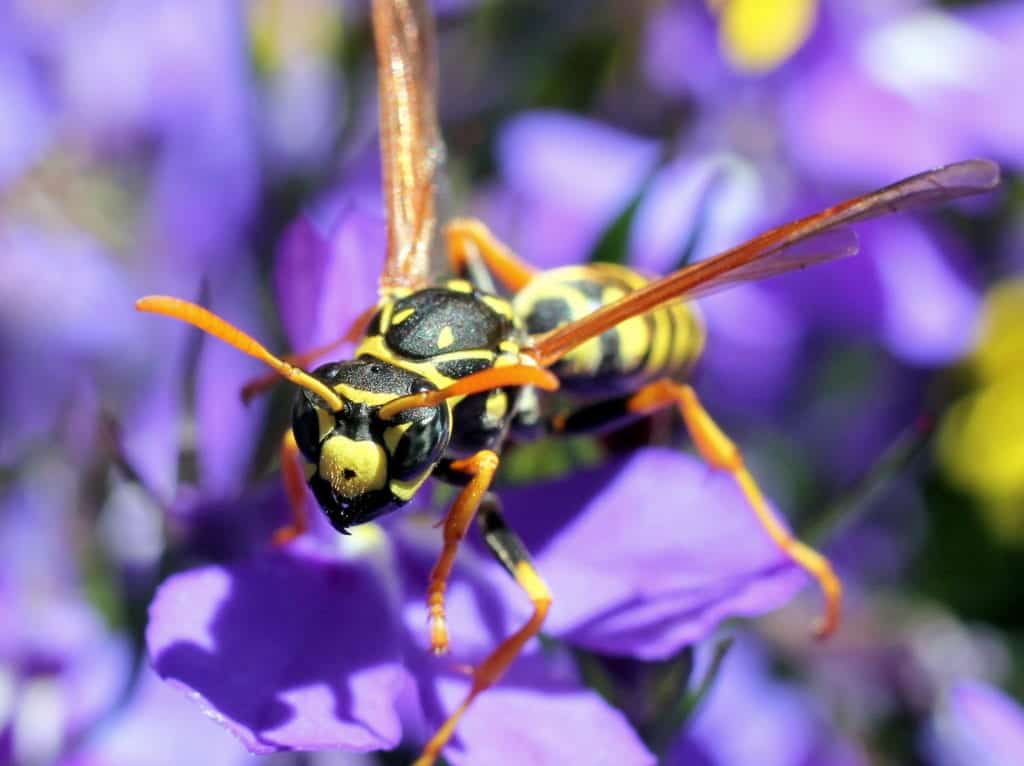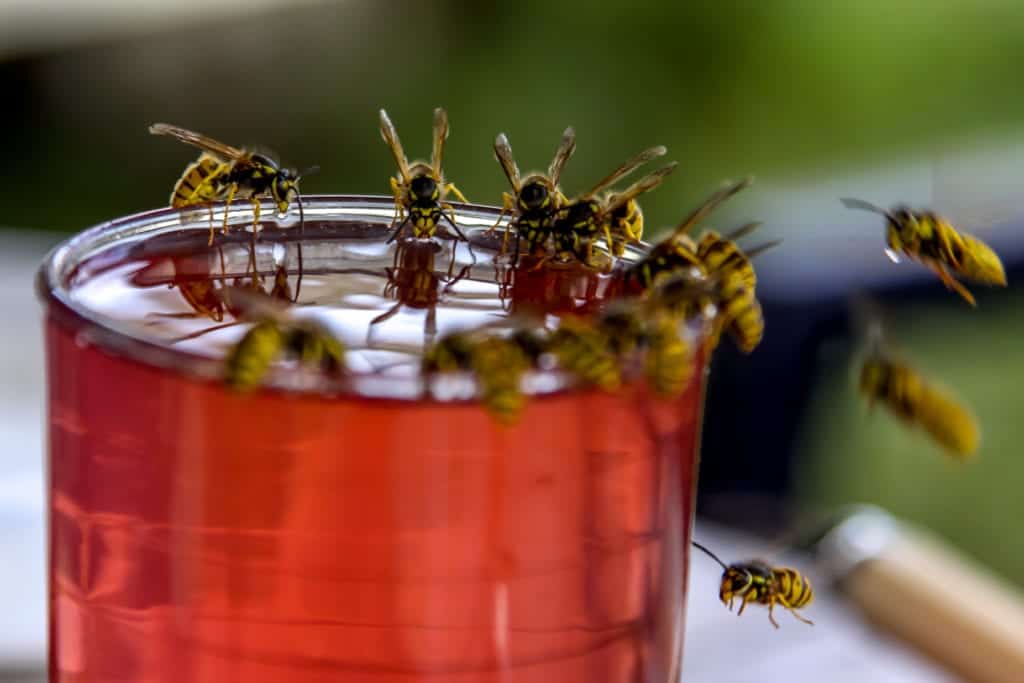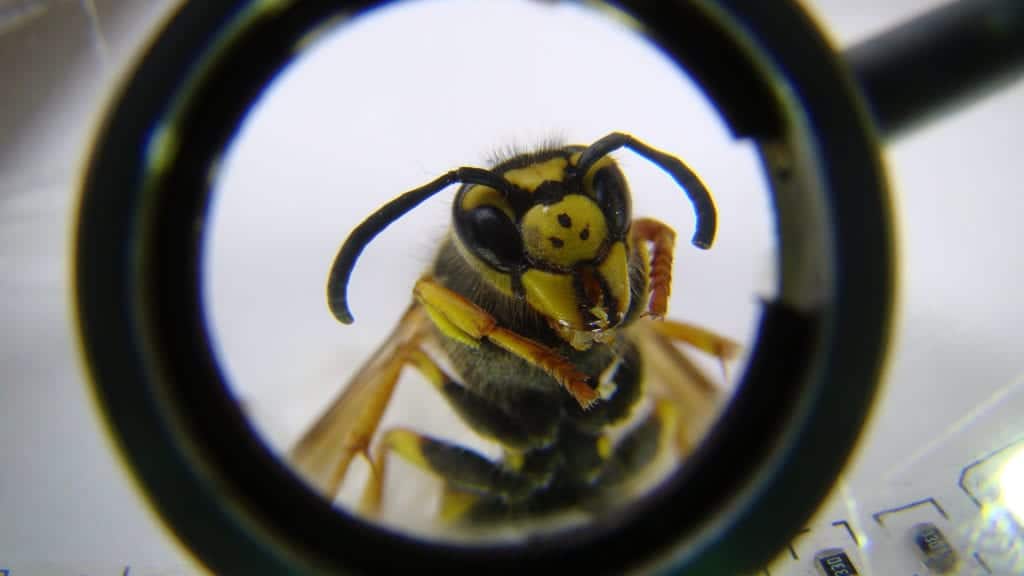Are You Smarter Than a Wasp?
Are You Smarter Than a Wasp?
Intelligent Buzzers
Wasps belong to the order known as Hymenoptera. This order includes bees, ants, hornets, and more, and is somewhat known for their intelligence. Honeybees, for example, have a very complex way of communicating and even voting when relocating to a new environment. They perform what is known as a waggle dance. This is the way that scout bees are able to communicate all of the information they observe about potential nesting sites to their fellow hive members. The longer they dance, the more bees get the opportunity to see the dance and, as they do, they will head out to see the location for themselves. When these bees return from checking out the different waggle sites, they will join in dancing the particular ‘waggle’ for whichever site they liked best. This process repeats and the votes continue to be cast until there is eventually a clear winner. Similarly, wasps are known for their intelligence and impressive abilities. In fact, due to their surprising ability to recognize and differentiate a vast number of scents as well as possessing keen olfactory senses to detect even very faint or faded smells, scientists have begun successfully training groups of wasps to identify and respond to the scents of explosives for a sweet, yummy reward. If these trials become operational, it could potentially replace the use of dogs in TSA and people will begin having their suitcases sniffed by wasps. The likelihood of this occurring has increased as of late, since wasps were recently found to be intelligent enough to pass logic tests. 
The Art of Deduction
Humans are not the only creatures capable of utilizing logic. Chimpanzees, gorillas, elephants, octopus’, and even rats, to name a few, have proven their aptitude when it comes to deduction. However, a certain form of logic known as ‘transitive inference’ have only been known to be cognitively possible in vertebrates until now. Transitive inference, as defined by the Oxford Handbook of Comparative Cognition, is “a form of deductive reasoning that allows one to derive a relation between items that have not been explicitly compared before.” For example, if Person A is taller than Person B, and Person B is taller than Person C, one can easily reason that Person A is also taller than Person C. 
The Study
Published in the Biology Letters, the study states that paper wasps are the first invertebrates to be observed with this complex cognitive ability. The study, led by evolutionary biologist Elizabeth Tibbetts of the University of Michigan, utilized two subspecies of paper wasps for the tests: Polistes dominula and Polistes metricus. These wasps were trained to identify five different colors paired together at different intervals. Each interval would expose the wasps to an area divided by the two colors: for example, one side is color A and the other is color B. Color A is the “safe zone” and presented no risk to the wasps, while color B was coursing with a very light electrical current that would zap the bees if they moved to that side of the arena. The wasp would then be placed in the next arena divided by Color B and Color C. This time, Color C would be the painful, electric side, and B would be safe. This pattern continued from the A-B paring, to D and E. This meant that A was always a safe zone, E was always a danger zone, and B, C, and D were interchangeable depending on the color pairing (with the letter closer to Z always being the danger zone). Due to their intelligence abilities, it wasn’t surprising to the team that the wasps were able to learn and respond to the patterns rather quickly, but the real test had not yet begun. Once the pattern was memorized, the scientists began mixing up the pairings, now introducing the wasps to combinations like A and E or A and C, that they had not previously seen. The scientists then began to track how many of the wasps were able to deduce the hierarchy pattern of the safety colors. The wasps responded most easily to the pairing of A and E due to the fact that these were the two colors that were always certain, but 65% of the wasps almost immediately picked up on the pattern relationship and avoided the unpleasant zaps. Tibbetts explained that the wasps were “organizing gall those pairs into a linear hierarchy in their head[s].” The leading theory behind this ability suggests that the wasps’ natural ability to organize the complex hierarchies within their own colonies is able to translate to these logic-based tests. “Our findings suggest that the capacity for complex behavior may be shaped by the social environment in which such behaviors are beneficial, rather than being strictly limited by brain size,” Tibbetts concludes of the extensive research project. Regardless of why it’s possible, we now know that wasps are capable of transitive inference and only time will tell if this will one day come into play in our pest control techniques. 
Citations
Honeybees Can Teach Us About Democracy (2012) YouTube. SciShow. Available at: https://www.youtube.com/watch?v=abk-advcCIw (Accessed: May 2020). Lazareva, O. (2012) Transitive Inference in Nonhuman Animals, Oxford Handbooks Online: Scholarly Research Reviews. The Oxford Handbook of Comparative Cognition. Available at: https://www.oxfordhandbooks.com/view/10.1093/oxfordhb/9780195392661.001.0001/oxfordhb-9780195392661-e-036 (Accessed: August 2020). Solly, M. (2019) Wasps are the First Invertebrates to Pass This Basic Logic Test, The Smithsonian Magazine. The Smithsonian Institute. Available at: https://www.smithsonianmag.com/smart-news/wasps-are-first-invertebrates-pass-basic-logic-test-180972148/ (Accessed: August 2020). Wu, K. (2018) Five Real Life Wasp Superpowers Not in Ant-Man and the Wasp, Smithsonian Magazine. The Smithsonian Institution. Available at: https://www.smithsonianmag.com/science-nature/why-you-should-let-wasp-be-your-hero-today-180969521/ (Accessed: July 2020).
Request a Free Quote Today
(We do not share your data with anybody, and only use it for its intended purpose)


